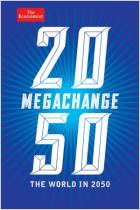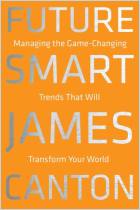Acesse a sua conta getAbstract para obter o resumo!

Acesse a sua conta getAbstract para obter o resumo!
Richard Watson
Future Files
A Brief History of the Next 50 Years
Nicholas Brealey Publishing, 2008
Sobre o que é?
What will life be like in 50 years? Hint: You’ll have a self-driving, flying car, but not in Belgium (bye-bye, Belgium).
Recommendation
In this bold, entertaining book, futurist Richard Watson reports the results of decades of thought about the future. He identifies more than 200 separate trends, which he helpfully winnows down into five overarching themes illustrated with real-world and hypothetical examples. His breezy style weaves these themes into the major areas of life: work, finances, politics, science, health care and entertainment, among others. Watson’s vision of the future covers all aspects – literally everything from taking baths to artificial intelligence – and the sweep of his ambition is impressive. He augments his text with good graphics, some perhaps tongue-in-cheek (his “Extinction Timeline” has Belgium biting the bullet around 2049). The book’s one weakness is that, while Watson tells readers what will happen in the future, he doesn’t always explain why. This caveat aside, getAbstract recommends this engaging book to leaders, innovators and all those interested in the future.
Summary
About the Author
Richard Watson is a futurist for the Future Exploration Network, and author and publisher of the quarterly What’s Next.



















Comment on this summary
Also, they use "social robots" in autism therapy. They are still testing it, but apparently autistic children have been responding really well to it.
Perhaps this point of "singularity" that Watson and other futurists predict is closer than we think!